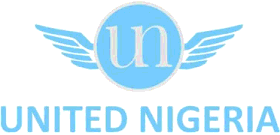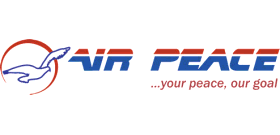United Nigeria Airlines Soars with New A320, Igniting Regional Expansion

United Nigeria Airlines has significantly enhanced its operational capacity with the recent addition of a third Airbus A320 aircraft, secured through a leasing agreement with Bulgarian carrier Fly2Sky Airlines. This strategic fleet expansion is a crucial step for the airline as it looks to solidify its domestic network and aggressively pursue growth in emerging regional markets. The swift integration of this A320 follows the recent incorporation of two similar aircraft, underscoring United Nigeria Airlines' proactive strategy to build a robust fleet capable of supporting substantial network expansion plans.
The airline's decision to invest in modern, fuel-efficient narrowbody jets is consistent with prevailing trends across the African aviation industry. Carriers on the continent are increasingly prioritizing a balanced approach to capacity, cost efficiency, and passenger comfort, all while striving to meet the escalating demand across diverse markets. With a fleet of three A320s, United Nigeria Airlines gains considerable operational flexibility, enabling optimized scheduling, increased flight frequencies, and a quicker response to shifts in passenger demand. These A320 aircraft are particularly valued for their proven reliability and efficiency, making them ideal for both short-haul domestic flights and longer regional routes that extend into West and Central Africa. This capability opens up new avenues for the airline to establish direct connections between Nigeria’s primary commercial hubs and key cities throughout the sub-region.
For aviation industry stakeholders, United Nigeria Airlines' fleet upgrade signals a notable transformation within Nigeria’s aviation landscape. The airline’s ambitious expansion unequivocally demonstrates that Nigerian carriers are prepared to contend for a larger share of intra-African air traffic. As more airlines across the continent commit to modernizing their fleets and elevating service standards, travelers can anticipate improved connectivity, more competitive airfares, and an overall enhanced travel experience. This expansion also carries significant implications for the broader Nigerian travel sector. The increased capacity and higher flight frequencies are expected to stimulate demand, making air transport more accessible and attractive to both business and leisure travelers. This, in turn, is poised to bolster the growth of tourism, trade, and regional integration, creating a ripple effect of benefits for the airline, airports, hospitality providers, and local economies.
The partnership with Fly2Sky Airlines exemplifies a growing trend among African carriers to utilize flexible leasing arrangements. Such collaborations empower airlines to rapidly modernize their fleets without the typical long lead times and substantial capital outlays associated with direct aircraft purchases. Leasing also provides operators with the agility to adjust their fleet size in response to evolving market conditions, thereby fostering sustainable growth while mitigating financial risks. With its expanding A320 fleet, United Nigeria Airlines is now strategically positioned to capitalize on opportunities in underserved markets and introduce new direct routes, especially as passenger confidence in air travel rebounds across Africa. This move is anticipated to spur further investment in aviation infrastructure, training programs, and support services within Nigeria, reinforcing the nation's pivotal role as a gateway for the sub-Saharan region.
Furthermore, this fleet enhancement reflects a broader movement toward professionalization and modernization within the African airline sector. As an increasing number of carriers adopt globally recognized aircraft types and operational standards, the continent stands to benefit significantly in terms of safety, reliability, and market competitiveness. For travel industry stakeholders, these developments point to a future where African airlines are better equipped to meet rising expectations and capture the economic advantages of a more interconnected region. United Nigeria Airlines' latest strategic move extends beyond merely adding an aircraft; it represents a foundational step in establishing a more robust and versatile network. As the airline continues its growth trajectory, it is set to play an increasingly influential role in shaping the future of Nigeria’s and Africa’s aviation landscape, generating new opportunities for business, tourism, and cross-border collaboration.
Recommended Articles
Air Peace Stares Down $38 Million Loss in SmartLynx Dispute, Industry Watches Closely

The escalating legal dispute between Air Peace and its former ACMI partner, SmartLynx Airlines, has led Air Peace to dec...
Nigeria Unleashes $2 Billion Connectivity Blitz: Submarine Cables to Bridge Digital Divide!

Nigeria is set to invest $2 billion in a 90,000-kilometre submarine cable network to ensure widespread quality connectiv...
Crisis Averted: United Nigeria Airlines Grounds Fleet After Double Bird Strike Chaos

United Nigeria Airlines is facing significant service disruptions due to two bird strikes within 24 hours, marking the f...
United Nigeria Airlines to Launch First Widebody Operation with Airbus A330 in 2026

United Nigeria Airlines will introduce its first Airbus A330 widebody in July 2026 through a wet-lease deal, marking its...
Ekiti's New Airport Soars: First Commercial Flight Lands, Billions Invested

Ekiti State marked a historic Wednesday with the inaugural commercial flight landing at the new Ekiti Agro-Allied Intern...
You may also like...
When Sacred Calendars Align: What a Rare Religious Overlap Can Teach Us

As Lent, Ramadan, and the Lunar calendar converge in February 2026, this short piece explores religious tolerance, commu...
Arsenal Under Fire: Arteta Defiantly Rejects 'Bottlers' Label Amid Title Race Nerves!

Mikel Arteta vehemently denies accusations of Arsenal being "bottlers" following a stumble against Wolves, which handed ...
Sensational Transfer Buzz: Casemiro Linked with Messi or Ronaldo Reunion Post-Man Utd Exit!

The latest transfer window sees major shifts as Manchester United's Casemiro draws interest from Inter Miami and Al Nass...
WBD Deal Heats Up: Netflix Co-CEO Fights for Takeover Amid DOJ Approval Claims!

Netflix co-CEO Ted Sarandos is vigorously advocating for the company's $83 billion acquisition of Warner Bros. Discovery...
KPop Demon Hunters' Stars and Songwriters Celebrate Lunar New Year Success!

Brooks Brothers and Gold House celebrated Lunar New Year with a celebrity-filled dinner in Beverly Hills, featuring rema...
Life-Saving Breakthrough: New US-Backed HIV Injection to Reach Thousands in Zimbabwe

The United States is backing a new twice-yearly HIV prevention injection, lenacapavir (LEN), for 271,000 people in Zimba...
OpenAI's Moral Crossroads: Nearly Tipped Off Police About School Shooter Threat Months Ago
ChatGPT-maker OpenAI disclosed it had identified Jesse Van Rootselaar's account for violent activities last year, prior ...
MTN Nigeria's Market Soars: Stock Hits Record High Post $6.2B Deal

MTN Nigeria's shares surged to a record high following MTN Group's $6.2 billion acquisition of IHS Towers. This strategi...